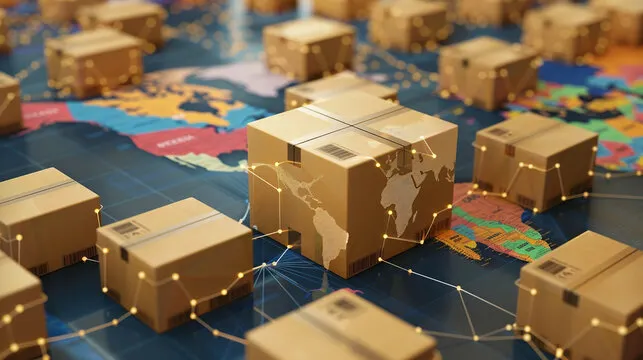


ESG factors are reshaping the way business is conducted regarding supply chain management. As increased expectations for sustainability and transparency exist internationally, companies must incorporate ESG principles. This will, in turn, optimize efficiency, mitigate risk, and align with stakeholder needs. Supply chains with increased complexity across various geographical regions create an imperative for regulatory compliance, reputational capital preservation, and longer-term resiliency based on ESG.
Regulators and governments across the globe are strengthening sustainability and ethical business requirements. Businesses are now required to have clean and ethical supply chains to meet laws such as the EU Corporate Sustainability Due Diligence Directive and SEC climate disclosure regulations. Non-compliance can result in serious financial sanctions. For example, a company called Invesco was fined $17.5 million in 2024 because of poor ESG disclosures.
Compliance management across jurisdictions is complicated, with differing regulations and reporting standards such as GRI, IFRS, and SASB. Monitoring Scope 3 emissions (partner and supplier emissions) is still difficult. Businesses use AI-powered automation to monitor suppliers’ compliance in real time, reducing regulatory hazards and enhancing transparency.
CDP Supply Chain Report 2022 indicates that supply chains produce as much as 11.4 times more emissions than business operations. Businesses are adopting renewable energy, sustainable procurement, and circular economy models to lower their carbon footprint. For instance, Unilever lowered supply chain emissions by 70% in 2023 through AI-based logistics optimization and sustainable raw materials.
Real-time monitoring by IoT sensors provides information on energy usage and waste management, while AI-based analytics determine the potential for carbon savings. ESG platforms streamline emissions tracking to assist businesses in achieving sustainability targets with ease.
Apart from environmental concerns, ESG frameworks focus on social responsibility by ensuring ethical labor practices and ethical sourcing. Businesses are required to enforce supplier compliance with labor legislation, eradicate exploitative labor, and ensure diversity and inclusion at workplaces.
Social responsibility can be overlooked at great cost. In 2018, Apple conducted 770 supplier assessments across various facilities, including manufacturing sites, logistics and repair centers, and contact centers.
Investors increasingly look for ESG performance in investment choices. In 2024, 78% of pharmaceutical companies increased their ESG investments, with the top 20 firms allocating $12.4 billion to environmental programs. Furthermore, a Nielsen report indicated that 72% of consumers prefer sustainable brands, proof that ESG initiatives create customer loyalty and market positioning.
Firms that embed ESG into their supply chains also gain financially. McKinsey research indicates that executing ESG strategies effectively can help combat rising operating expenses, such as raw-material costs and the true cost of water or carbon, potentially improving operating profits by as much as 60%.
By actively managing environmental and geopolitical risks, ESG-integrated supply chains are more resilient. Firms are leveraging predictive analytics to evaluate vulnerabilities and blockchain-based tracing to guarantee transparency. Benchmarking instruments enable organizations to compare and enhance their ESG performance with industry leaders.


Most businesses find it difficult to monitor and report ESG metrics accurately. Clenergize ESG+™ makes it easy by:
As carbon reduction pressure mounts, Clenergize assists businesses in:
Climate risks, immorality-based sourcing, and changing regulations are capable of impacting supply chains. Clenergize ESG+™ provides:
Stakeholders and investors require improved ESG clarity. Clenergize enables businesses to:
Green supply chains help both the planet and profit. Businesses on Clenergize ESG+™ attain:
Integrating ESG into supply chain management is essential for sustainability, competitiveness, and compliance. Advanced technologies enhance transparency, automate reporting, and mitigate risks, ensuring businesses meet ESG requirements effectively.
By leveraging AI, blockchain, and IoT-enabled tools, businesses can future-proof their supply chains, build stakeholder trust, and contribute to a sustainable global economy. Need to maximize ESG compliance within your supply chain? Let’s discuss.